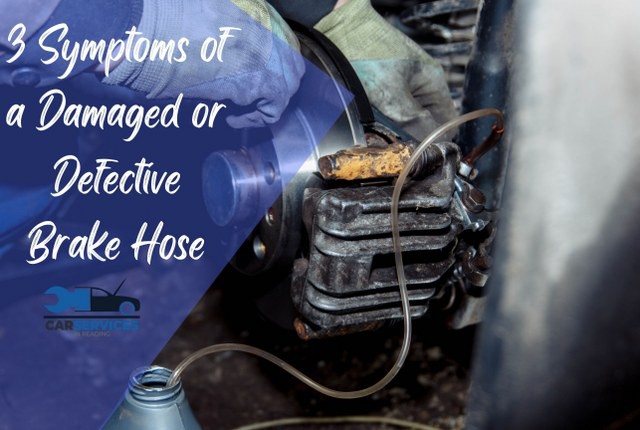
3 Symptoms of a Damaged or Defective Brake Hose
Modern
vehicle braking systems consist of a number of interconnected components
that work together to slow and stop the vehicle. When the brakes are engaged,
brake fluid is discharged from the master cylinder to the calipers, expanding
the calliper piston and slowing the car down and bringing it to a full stop.
However, before reaching the calipers, the brake fluid must flow via a brake
line.
The
flexible hoses that connect the calipers to the wheel cylinder are known as
brake hoses. They must be adaptable in order to account for the suspension
movement of the vehicle when rotating the wheels and going through uneven
terrain.
They
are a vital component of the braking system, and if they fail, the rest of the
system may suffer. Request a comprehensive health check of your vehicle while
looking for a car
service near me garage online so you may be informed of any
malfunctioning or weak parts that require urgent or near-future maintenance.
When
brake hoses start to fail, they generally show a few indications that might
warn the driver to a possible problem:
1. Spongy brake pedal - A
spongy brake pedal is one of the most typical symptoms connected with a
possible brake hose problem. If the brake hoses create any leaks that affect
the system's pressure, the result might be a spongy pedal. This is a concern
not just because the brake feel would be abnormally soft and hence less
sensitive, but also because hydraulic pressure, which the braking system relies
on, will be compromised.Since the braking system is responsible for stopping
the vehicle, any flaw in its operation jeopardises the vehicle's safety. Look
for car mechanics near me
online and schedule an appointment for a full inspection and any required
repairs.
2. Damaged or Worn Brake Hose
- Damage or wear to the hose's outside is another typical indicator of a
defective or failing brake line. Because brake hoses are exposed to continual
pressure, bending, braking, and turning, they are designed to endure high
pressures. Brake hoses, on the other hand, can become worn down over time due
to exposure to the environment and the tremendous heat created by braking. They
can develop fractures, rips, or even loose hanging threads, all of which weaken
the hose and reduce its ability to maintain pressure, making it more vulnerable
to leaks. When looking to book your vehicle with a full car service near
me garage, majority of garages include a 50 point plus check of your
vehicle which will pick up on any other faulty parts on your car that need
attention.
3. Brakes Not Working - A car
with inoperable brakes is another more dangerous indication of a faulty brake
line. If this happens, go online, look for a vehicle
service near me garage and make an appointment right away. The
brake lines deliver hydraulic braking fluid and pressure to the calipers,
allowing the vehicle to slow down. The car will not have braking pressure if
one or more of the brake lines breaks, resulting in inoperable brakes. A car
with faulty brakes is clearly dangerous to drive and should be fixed as soon as
possible.
Brake
hoses are an integral element of a vehicle's braking system. They automatically
form a vital part of the vehicle's overall safety. As a result, if you believe
that one of your brake hoses is failing, get your braking system evaluated by a
qualified technician to see whether you need to replace your brake hoses.
What's the Difference Between a Brake Hose and A Brake Line?
The
brake line is a network of strong metal tubing that runs the length of your
vehicle. The master cylinder sends brake fluid to locations near the wheels of
your vehicle using this tube network.
You
may ask why does it stop there and why not take it all the way to the
brake calliper or wheel cylinder? The simple answer to this is b Because the
metal tube would shatter if your vehicle moved up and down as you drove over a
speed bump or when your wheels turned sideways.
A
hydraulic brake hose comes in helpful in this situation.
The
brake hose connects your stiff brake line to the brake caliper or wheel
cylinder through a flexible pipe. Because the brake hose is flexible, it can
easily respond to your wheel motions.